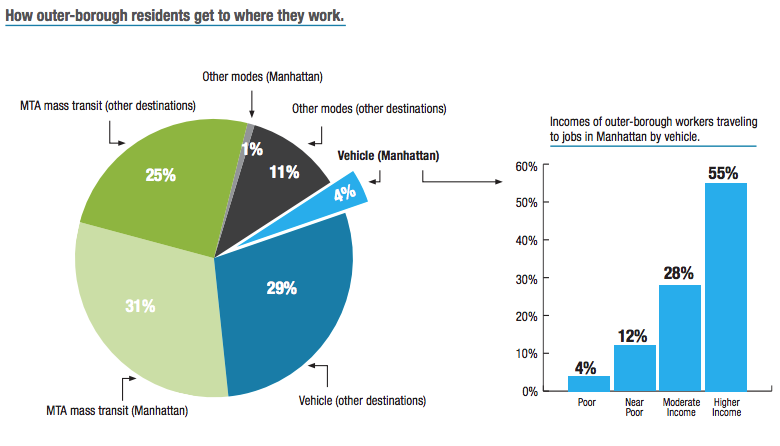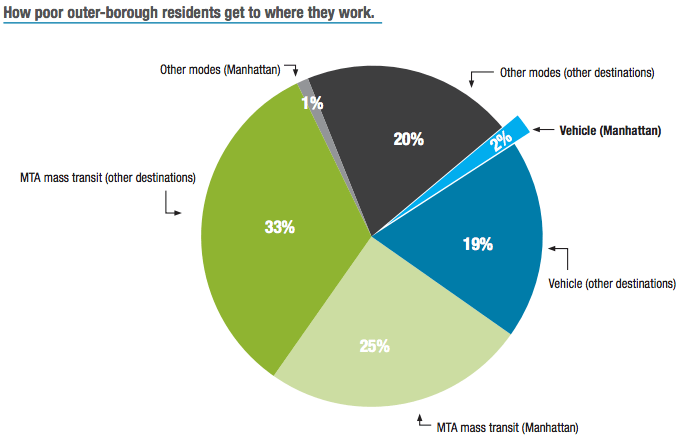Despite all evidence to the contrary, Mayor Bill de Blasio insists that congestion pricing is "a regressive tax." A new report from the Community Service Society [PDF] shows that the mayor doesn't have a leg to stand on: The people who would pay more to drive into the most congested parts of the city are disproportionately affluent, and poor New Yorkers stand to gain much more from reforming the city's toll system than from the status quo.
On Sunday, announcing a congestion relief plan that's doomed to fail, de Blasio reiterated his opposition to the Move NY plan, which would charge a uniform price to drive into Manhattan below 60th Street while lowering tolls on farther-out MTA crossings.
"Rich people will pay it without even knowing and poor people and working class people will really take a hit," the mayor said.
That's not what the Census data says. For every low-income New Yorker who drives into Manhattan from the outer boroughs and might be affected by Move NY, dozens would reap the benefits of transit improvements made possible by Move NY revenues, according to CSS.
Just 4 percent of all NYC workers who live in the outer boroughs commute into Manhattan by car, according to American Community Survey data from 2011 through 2015. Most of those commuters are on the upper end of the income ladder: 55 percent qualify as high-income, while just 16 percent earn less than double the federal poverty threshold.
Of all outer borough households earning less than double the poverty line, just 2 percent commute via car into Manhattan -- a total of 5,000 people. That still overstates the number of people who would pay, since many commuters to jobs above 60th Street would not be affected by the Move NY toll cordon.
The benefits of congestion pricing, meanwhile, would accrue to low-income New Yorkers in a number of ways. Relieving traffic jams will improve bus service, which has been consistently losing speed as streets get more crowded with cars. Revenue from the congestion fees will also be reinvested in capital improvements that can make trains and buses faster and more reliable.
Those service improvements would benefit more than 2.1 million subway and bus riders. Of those, 190,000 would be eligible for half-price MetroCards under the "Fair Fares" proposal -- 38 times the maximum number of low-income car commuters who would pay a congestion fee.
"The high cost of riding the city’s buses and subways is pushing people into poverty," said CSS President and CEO David Jones, one of mayor's representatives on the MTA Board. "That reality cannot be ignored as we consider solutions for fixing our deteriorating mass transit system and ensuring its viability for the millions who rely on it daily and drive the city’s economy."
“CSS’s data analysis confirms that the City’s working poor are clear beneficiaries under the Move NY Fair Plan -- a highly progressive proposal that will slash traffic and raise over $1 billion a year to upgrade and expand our mass transit system,” said Move NY campaign director Alex Matthiessen. “If we are serious about improving outcomes for the lowest income New Yorkers, we need to invest in mass transit and make it easier and more affordable for working people to get to their jobs, look for work or access job training and education programs.”







